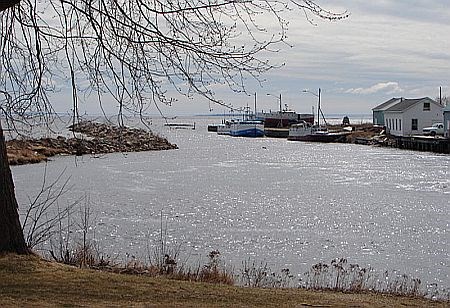The uncertainty over Ontario's fledgling biomass economy has a northeastern Ontario community dropping a biomass energy project and switching to solar.
Plans to build a biomass co-generation plant in Blind River have been torn up and a consortium of partners are working on a new proposal for a 9.4 megawatt solar farm.
A big hurdle ahead will be securing financing for the $160-million project to be sited in near an industrial park.
The Blind River Development Corporation teamed up with Powerhouse Energy Inc. for two years to form a joint venture company called North Shore Power Group and study renewable energy projects. The Misswezahging Development Corporation, representing the Mississauga First Nation, is also involved.
The community of 3,700, halfway between Sault Ste. Marie and Sudbury, is a former forestry mill town that has been forced to be innovative in exploring some bio-economy prospects.
At one time, they were studying as many as three biomass co-gen (heat and power) plants to sell power to the Ontario grid and also provide heat to tenants in a planned eco-industrial park.
But those plans were scuttled when Queen's Park came out last winter with a two-pronged, two-ministry procurement process to assess Ontario's Crown-owned wood biomass source and its business potential.
The McGuinty government has pledged to get its power plants off coal by 2014. Wood pellets made from forest slash is being looked upon as the primary fuel. The Ministry of Natural Resources has received 131 proposals last spring from undisclosed applicants with big ideas for projects to convert Crown-owned forest slash into bio-chemicals, bio-fuels, co-generation and wood pellets, but the government has given no indication when a short-list is coming out and formal offers will be extended to the best projects.
For Stoney Burton, general manager of the Blind River Development Corp., three years of crunching numbers on where to source biomass, how much to pay and studying the economics of how to make it work profitably, all went out the window.
“The whole world is in a tizzy about biomass,” said Burton. “With the cost of fuels being volatile, with the access to fibre being unpredictable at best, with the price of fibre being nothing short of a northward, the last place you would want to be is investing in a biomass facility, where the return on investment – best case – would be four per cent.”
With little knowledge and plenty of unanswered questions about what the new regime will look like, they declared the co-gen project “toast” and the partners switched over to studying a solar farm.
It's forced Burton to change gears and get up to speed on the economics of the solar industry within three months.
“If someone had told me prior to Christmas that by February I'd have the whole thing re-written into a solar plant, I'd have told them they were absolutely out of their mind, it couldn't be done,” said Burton. “But we did it.”
The solar regime in Blind River is measured at a promising 12.1-million-kilowatt-hours per year. As good as Sault Ste. Marie's where a 60-megawatt solar farm by California's Pod Generating Group remains undeveloped, but on the books.
Competition to finance it with private and public money will be stiff since the current market appetite for these projects is “nil to poor.”
“It's going to take pulling out all the stops to make this one go for the community,” said Burton. “We're walking into the banks with a solar project and they're saying we've never done one of these before.”
Depending on how the financing shakes down, Powerhouse Energy may or may not be a potential part-owner. Under Infrastructure Ontario rules, such a project must be 100 per cent municipally-owned.
“Some financing sources want the security of municipal backing, others are more secure with a private sector operator with experience.”
Burton said Powerhouse has a “significant” track record in pulling these types of projects together.
Heading up the company is former Blind River resident, Graeme Lowry. He was well-known locally as a North Shore hydro electric developer and a one-time proponent of an aborted birch plywood project, Algoma Mill Works.
Burton said it appears Blind River will likely own the project with Powerhouse serving as a developer-manager.
The town is awaiting word on a government funding application for a 60-acre parcel of land near the east end industrial park.
Tenders are out to begin land clearing and engineering work this fall which involves installing road and water connections, before they entered into detailed discussions with financiers.
“Once we get the land cleared, we'll know what we're doing from the technical base required to put in the solar system,” said Burton. “We've got a whole whack of work ahead.”




